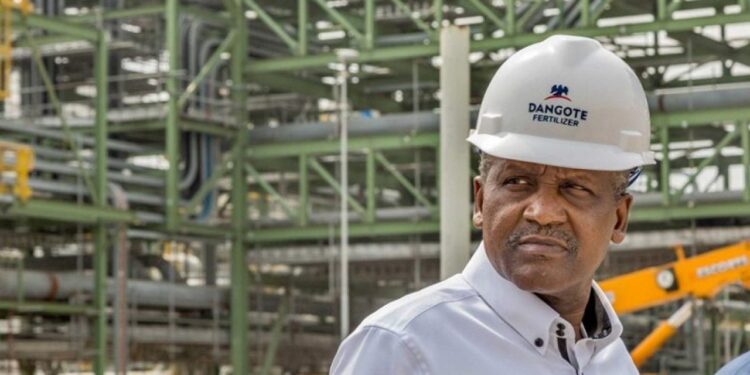The Nigerian Midstream and Downstream Petroleum Regulatory Authority (NMDPRA) is embroiled in a contentious issue regarding the quality of diesel produced by the Dangote Refinery, amidst conflicting claims and regulatory oversight.
NMDPRA spokesperson George Ene-Ita addressed the ongoing controversy, emphasizing the agency’s commitment to transparency and thorough regulatory processes. He clarified that the NMDPRA had deployed engineers and scientists within the Dangote Refinery to monitor operations closely, with a fresh report on the refinery’s sulfur content expected imminently.
Ene-Ita dismissed notions of a media spat, highlighting the authority’s responsibility to uphold standards without engaging in public disputes. He reiterated that the refinery, despite selling diesel and aviation fuel in Nigeria for months, had yet to receive operational licensing and remained in the pre-commissioning phase.
Meanwhile, Farouk Ahmed, CEO of NMDPRA, raised concerns about over-reliance on Dangote Refinery for national fuel supply. Ahmed stated that Dangote had requested the cessation of import licenses for petroleum products, which could create a monopoly detrimental to energy security and market dynamics.
Ahmed also alleged that Dangote’s diesel, along with products from other modular refineries, fell short in quality compared to imported standards, citing sulfur content discrepancies.
However, Aliko Dangote, during a recent visit by members of the House of Representatives, disputed these claims vehemently. He showcased tests revealing significantly lower sulfur levels in Dangote’s diesel compared to samples from popular filling stations in Lagos, challenging the regulator to validate these findings independently.
Dangote accused NMDPRA of undermining local refinery efforts and emphasized the need for fair assessment and support from regulators to enhance Nigeria’s energy independence.
The situation has sparked public concern and calls for accountability, with online voices urging further investigation and potential consequences for regulatory officials involved.
As the controversy unfolds, stakeholders await clarity on the regulatory stance and the refinery’s operational future amid broader implications for Nigeria’s energy sector and economic stability.
























